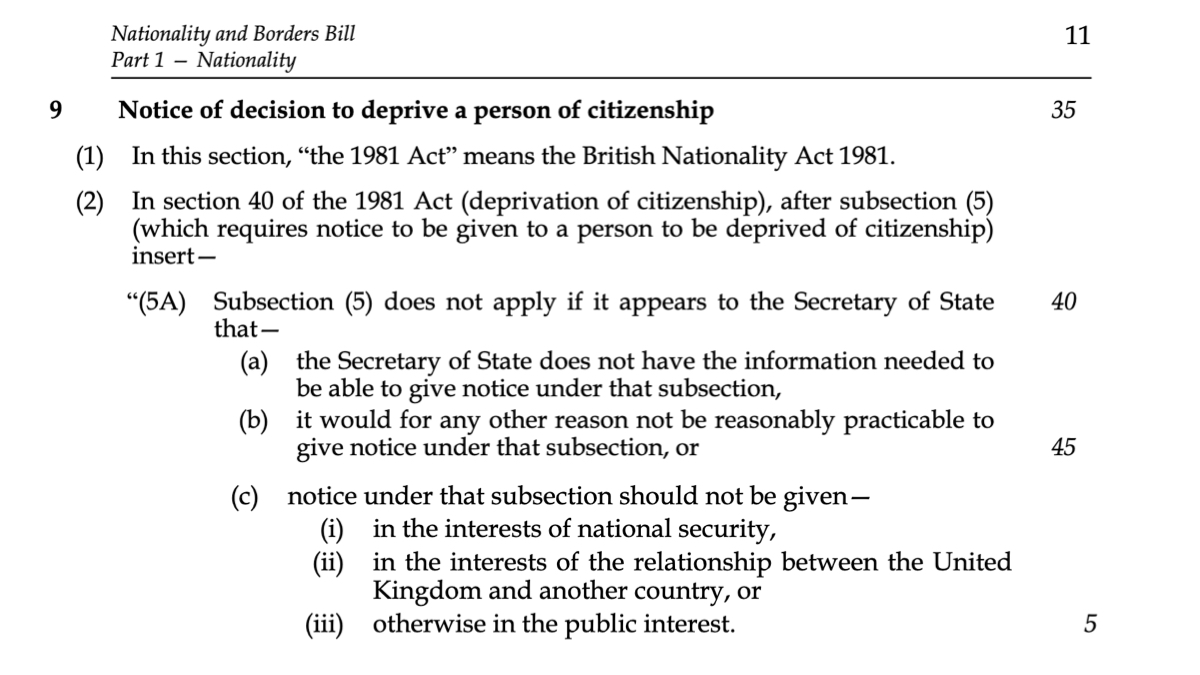
🚨 NEW
Ministers will be able to strip British citizens of their citizenship without telling them, under the Nationality and Borders Bill.
theguardian.com/politics/2021/…
Ministers will be able to strip British citizens of their citizenship without telling them, under the Nationality and Borders Bill.
theguardian.com/politics/2021/…
The new clause allowing this was quietly added to the Bill in committee in the Commons, in October.
It is the most fundamental requirement of fairness that citizens are given notice of decisions that will affect them.
It is the most fundamental requirement of fairness that citizens are given notice of decisions that will affect them.

It’s hard to think of anything more drastic than losing your citizenship, which has been widely recognised as ‘the right to have rights’.
A former chief justice of the US Supreme Court described deprivation as ‘the total destruction of the individual's status in organized society … a form of punishment more primitive than torture’.
Yet the Bill says notice will not be needed to strip someone of their citizenship if it would not be ‘reasonably practicable’ to give it, or in the interests of ‘national security’ or diplomatic relations, or for other ‘public interest’ reasons.
It also seeks to validate deprivation orders made before the section comes into force, which would be invalid because no notice has been given to the persons affected.
publications.parliament.uk/pa/bills/cbill…
publications.parliament.uk/pa/bills/cbill…

The message it sends is that certain citizens, despite being born and brought up in the UK and having no other home, remain migrants, so that their citizenship, and therefore all their rights, are precarious and contingent.
The clause builds on previous measures which allow British-born dual nationals (who are mostly from ethnic minorities) to be stripped of citizenship, if it is ‘conducive to the public good’ – and to lose citizenship while they are abroad, meaning they can’t return.
Dozens of British citizens have lost their citizenship in this way in the past decade – over 100 in 2017 alone. At least two have been killed by US drones following the loss of citizenship, and one was kidnapped and taken to the US for trial.
The clause flouts international obligations and basic norms of fairness.
It is of a piece with other proposals, which will deny refugees refuge here, criminalise rescuers and give Border Force officials civil & criminal immunity for migrants’ deaths during ‘pushback’ operations.
It is of a piece with other proposals, which will deny refugees refuge here, criminalise rescuers and give Border Force officials civil & criminal immunity for migrants’ deaths during ‘pushback’ operations.
• • •
Missing some Tweet in this thread? You can try to
force a refresh








